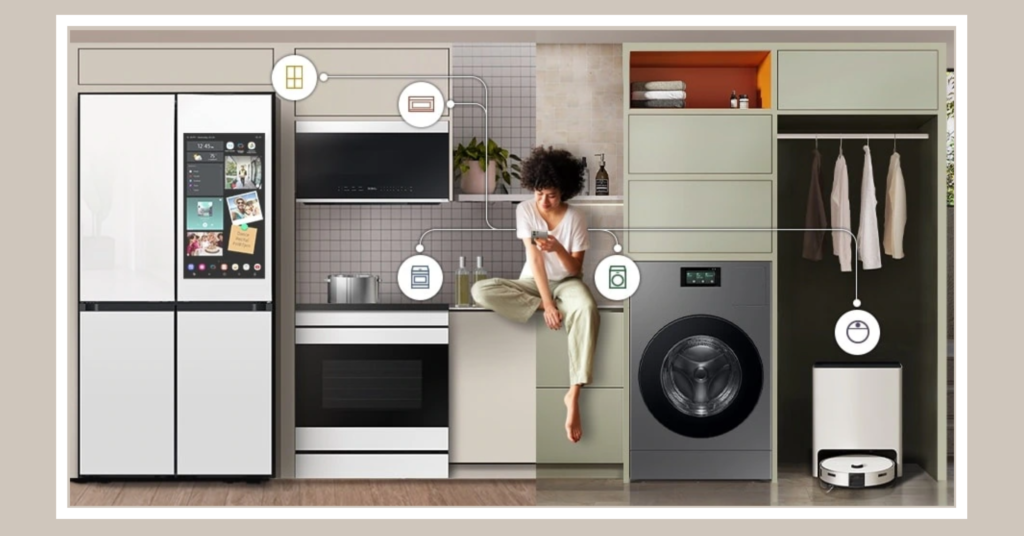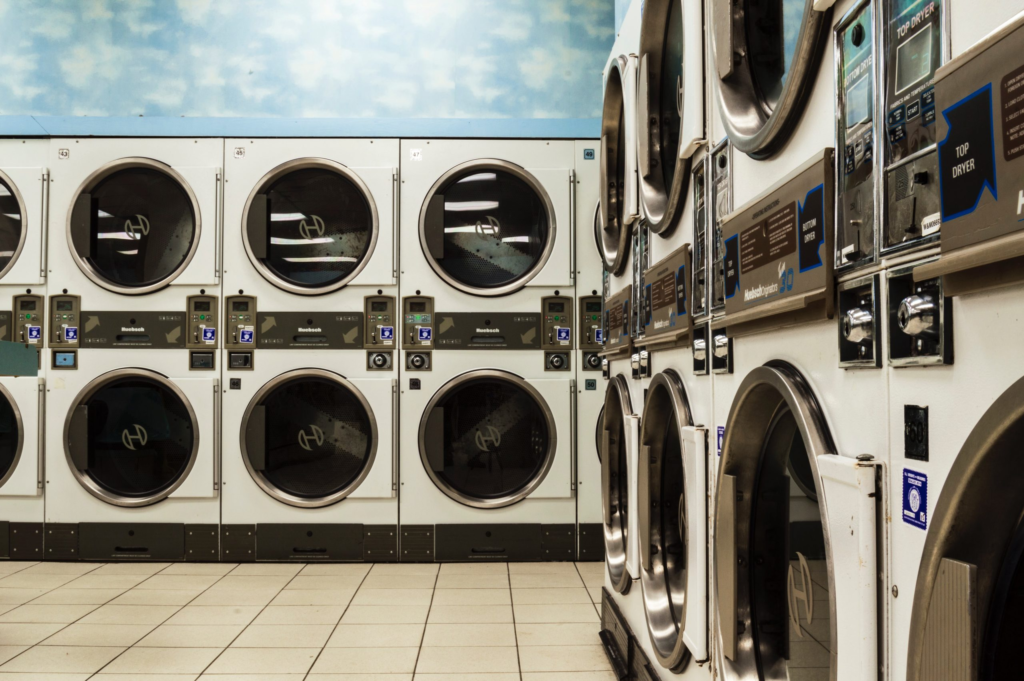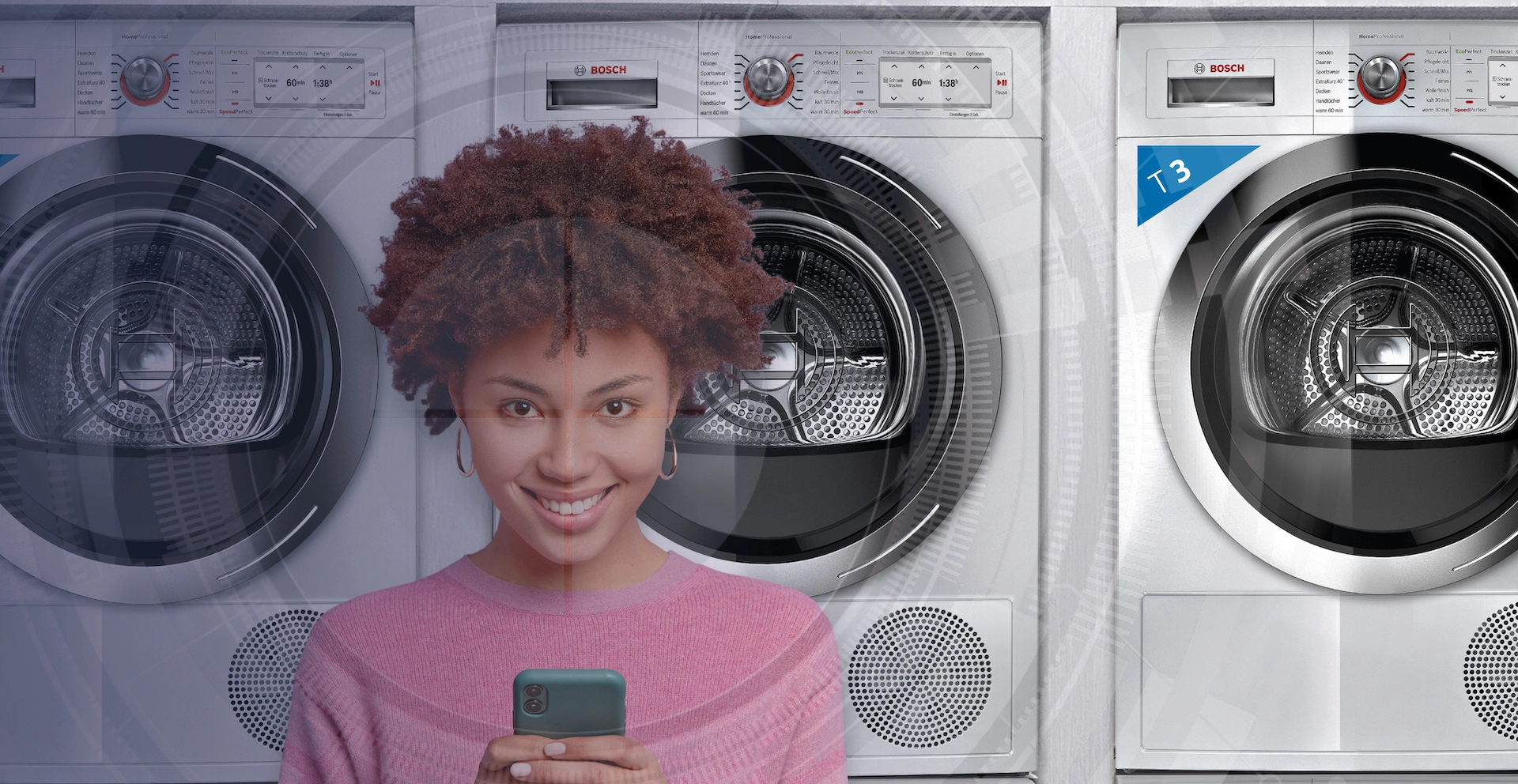Introduction
The advent of smart technology is revolutionizing our homes, bringing convenience, efficiency, and a touch of luxury to everyday tasks. Among these advancements, smart appliances in laundry rooms stand out for their ability to transform the mundane chore of washing clothes into a seamless, streamlined experience. This article explores how the integration of smart technology in laundry rooms is reshaping the way we approach laundry, offering insights into the various features, benefits, and future trends of smart laundry appliances.

Table of Contents
The Evolution of Laundry Appliances
Traditional to Modern Machines

The journey from traditional washboards to modern washing machines has been marked by significant innovations aimed at easing the burden of laundry. Early 20th-century washing machines, which required manual effort, evolved into automated machines in the mid-20th century, bringing about the convenience of electric-powered washing and spinning.
The Dawn of Smart Appliances
The late 20th and early 21st centuries saw the introduction of digital controls and sensors in laundry appliances. However, the true revolution began with the integration of internet connectivity and smart technology, leading to the development of appliances that can communicate, automate tasks, and be controlled remotely.
Key Features of Smart Laundry Appliances
Connectivity and Control

One of the defining features of smart laundry appliances is their connectivity. Through Wi-Fi and Bluetooth, these machines can be connected to smartphones, tablets, and home automation systems, enabling users to control and monitor them remotely.
- Remote Operation: Users can start, pause, and stop laundry cycles from anywhere using their mobile devices. This feature is particularly useful for busy individuals who can manage laundry tasks while at work or running errands.
- Notifications and Alerts: Smart appliances send notifications about cycle status, detergent levels, and maintenance needs, ensuring users stay informed and can take timely actions.
Automation and Efficiency
Smart technology enhances the efficiency of laundry appliances by automating various aspects of the washing process.
- Load Detection: Smart washing machines can detect the weight and type of load, automatically adjusting water levels, cycle duration, and detergent usage for optimal cleaning and resource conservation.
- Energy and Water Efficiency: These appliances are designed to minimize energy and water consumption, often exceeding the standards set by energy efficiency certifications such as ENERGY STAR.
Customization and Personalization
Smart laundry appliances offer a range of customizable settings to cater to individual preferences and specific laundry needs.
- Custom Wash Cycles: Users can create and save custom wash cycles tailored to different fabric types, stain levels, and personal preferences, ensuring the best care for their clothes.
- Voice Control: Integration with voice assistants like Amazon Alexa and Google Assistant allows users to control their appliances using voice commands, adding a layer of convenience.
Maintenance and Diagnostics

Maintaining and troubleshooting appliances becomes simpler with smart technology.
- Self-Diagnostics: Smart appliances can perform self-diagnostics, identifying issues and providing troubleshooting steps or alerting users to contact customer support.
- Scheduled Maintenance: Some machines can schedule maintenance reminders based on usage patterns, ensuring optimal performance and longevity.
Benefits of Smart Laundry Appliances
Convenience
The ability to control and monitor laundry appliances remotely offers unparalleled convenience. Users can manage their laundry tasks from anywhere, ensuring their clothes are washed and dried at the most convenient times.
Time Savings
Automated features such as load detection and custom cycles save time by optimizing the washing process. Users no longer need to manually adjust settings for different loads, and alerts ensure they promptly address any issues.
Cost Efficiency
Energy and water-efficient smart appliances can lead to significant cost savings over time. By using resources more efficiently, these machines help reduce utility bills and environmental impact.
Enhanced Fabric Care
Smart laundry appliances are designed to provide optimal care for different fabric types. Custom wash cycles and precise control over washing parameters ensure clothes are cleaned effectively without damage, extending their lifespan.
Stress Reduction
With automated maintenance reminders and self-diagnostics, users can avoid the stress of unexpected breakdowns and costly repairs. Regular maintenance ensures appliances run smoothly and efficiently.
Popular Smart Laundry Appliances
Smart Washing Machines

Brands like LG, Samsung, and Whirlpool have pioneered smart washing machines that incorporate advanced features such as AI-powered cycle recommendations, steam cleaning, and allergen removal.
- LG ThinQ Washing Machines: These machines offer AI Fabric Care, which identifies fabric types and selects the optimal wash cycle. The ThinQ app allows remote control and monitoring, and integration with Google Assistant and Alexa provides voice control capabilities.
- Samsung Smart Washing Machines: Samsung’s smart washers feature EcoBubble technology for effective cleaning at lower temperatures, Smart Control for remote operation, and AI Wash, which uses sensors to determine the best wash settings.
Smart Dryers
Smart dryers complement smart washing machines, offering features like moisture sensors, remote control, and automated drying cycles.

- Whirlpool Smart Dryers: Whirlpool’s smart dryers offer advanced moisture sensing to prevent over-drying, remote start and stop via the Whirlpool app, and integration with Nest thermostats to optimize drying times.
- GE Smart Dryers: GE’s smart dryers feature SmartHQ technology, providing remote control and monitoring, predictive maintenance alerts, and customizable drying cycles for different fabric types.
Future Trends in Smart Laundry Technology
Integration with Home Automation
The future of smart laundry appliances lies in deeper integration with home automation systems. Appliances will become more interconnected, working seamlessly with other smart devices to create a fully automated and efficient home environment.
- Smart Home Ecosystems: Companies like Apple, Google, and Amazon are developing smart home ecosystems where laundry appliances, lighting, heating, and security systems work together for enhanced convenience and efficiency.
AI and Machine Learning

Advancements in AI and machine learning will enable laundry appliances to become even smarter, learning user preferences and optimizing performance over time.
- Predictive Maintenance: AI-powered predictive maintenance will identify potential issues before they become problems, reducing downtime and repair costs.
- Personalized Recommendations: Machine learning algorithms will provide personalized wash and dry cycle recommendations based on user behavior and laundry habits.
Sustainable Innovations
Sustainability will continue to be a major focus, with smart appliances incorporating more eco-friendly features.
- Water Recycling: Future washing machines may include water recycling systems to reduce water usage significantly.
- Energy Harvesting: Innovations in energy harvesting technologies could enable appliances to generate and store energy from their own operations, further reducing their environmental impact.
Challenges and Considerations
Cost and Accessibility
While smart appliances offer numerous benefits, they come with a higher upfront cost compared to traditional appliances. Ensuring these technologies are accessible to a broader audience is essential for widespread adoption.
Privacy and Security

The integration of smart technology raises concerns about data privacy and security. Manufacturers must prioritize robust security measures to protect user data and prevent unauthorized access.
Technical Support and Compatibility
As smart appliances become more complex, ensuring reliable technical support and compatibility with other smart devices and platforms is crucial for user satisfaction.
Conclusion
Smart technology is revolutionizing laundry rooms, bringing unprecedented convenience, efficiency, and sophistication to the task of doing laundry. From remote control and automation to personalized fabric care and energy efficiency, smart laundry appliances are transforming the way we manage our laundry chores. As technology continues to advance, the integration of AI, machine learning, and sustainable innovations will further enhance the capabilities of these appliances, making our homes smarter and more sustainable. Embracing these advancements can lead to a more efficient, enjoyable, and eco-friendly laundry experience, paving the way for a brighter and smarter future.
FOR MORE INFORMATION, VISIT https://walnutstreetlaundry.com/
FAQ
1. What are smart laundry appliances?
Smart laundry appliances are advanced washing machines and dryers that integrate internet connectivity and smart technology to provide enhanced control, automation, and efficiency. They can be operated remotely, offer custom settings, and often come with features like load detection and energy-saving functions.
2. How do smart laundry appliances connect to my devices?
Smart laundry appliances typically connect to your devices via Wi-Fi or Bluetooth. You can control and monitor them using a dedicated mobile app provided by the appliance manufacturer. These apps allow you to start, stop, and monitor cycles, receive notifications, and customize settings.
3. What are the benefits of using smart laundry appliances?
- Convenience: Control and monitor your laundry from anywhere.
- Time Savings: Automated features and custom cycles save time.
- Cost Efficiency: Energy and water-efficient operations reduce utility bills.
- Enhanced Fabric Care: Optimal settings for different fabrics prolong the life of your clothes.
- Stress Reduction: Maintenance reminders and self-diagnostics help prevent unexpected issues.
4. Can I control smart laundry appliances with voice commands?
Yes, many smart laundry appliances integrate with voice assistants like Amazon Alexa and Google Assistant. This allows you to control your appliances using voice commands, adding an extra layer of convenience.
5. What are some popular brands offering smart laundry appliances?
Popular brands include:
- LG: Known for their ThinQ series, which offers AI Fabric Care and remote control capabilities.
- Samsung: Features include EcoBubble technology, Smart Control, and AI Wash.
- Whirlpool: Offers advanced moisture sensing, remote operation via the Whirlpool app, and integration with Nest thermostats.
- GE: Features SmartHQ technology for remote control, predictive maintenance alerts, and customizable drying cycles.
6. How do smart washing machines optimize washing cycles?
Smart washing machines use sensors to detect load size, fabric type, and soil level. They automatically adjust water levels, cycle duration, and detergent usage to ensure optimal cleaning while conserving resources.
7. Are smart laundry appliances energy and water-efficient?
Yes, smart laundry appliances are designed to be energy and water-efficient. Many models exceed the standards set by energy efficiency certifications such as ENERGY STAR, helping you save on utility bills and reduce environmental impact.
8. What kind of maintenance do smart laundry appliances require?
Smart appliances often come with self-diagnostics and scheduled maintenance reminders. They can identify issues early, guide you through troubleshooting steps, or prompt you to contact customer support if necessary, ensuring optimal performance and longevity.
9. What future trends can we expect in smart laundry technology?
- Deeper Integration with Home Automation: More interconnected appliances that work seamlessly with other smart home devices.
- AI and Machine Learning: Enhanced predictive maintenance, personalized recommendations, and optimized performance.
- Sustainable Innovations: Water recycling systems and energy harvesting technologies to further reduce environmental impact.
10. Are there any concerns with smart laundry appliances?
- Cost: Higher upfront costs compared to traditional appliances.
- Privacy and Security: Concerns about data privacy and unauthorized access.
- Technical Support and Compatibility: Need for reliable support and compatibility with other smart devices.
11. How can I ensure the security of my smart laundry appliances?
To ensure the security of your smart appliances:
- Use Strong Passwords: Set strong, unique passwords for your home network and smart appliance accounts.
- Regular Updates: Keep your appliance firmware and mobile apps up to date with the latest security patches.
- Secure Network: Use a secure, encrypted Wi-Fi network and consider segmenting your smart devices from your main network.
12. What are some examples of custom settings available on smart laundry appliances?
Custom settings can include:
- Custom Wash Cycles: Tailored for different fabric types, soil levels, and personal preferences.
- Delayed Start: Schedule cycles to start at a later time.
- Favorite Settings: Save frequently used settings for quick access.
By embracing these smart technologies, you can enjoy a more efficient, convenient, and sustainable laundry experience.
